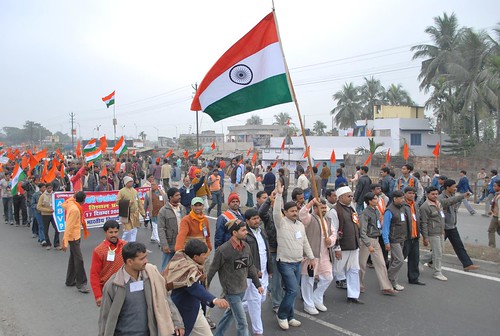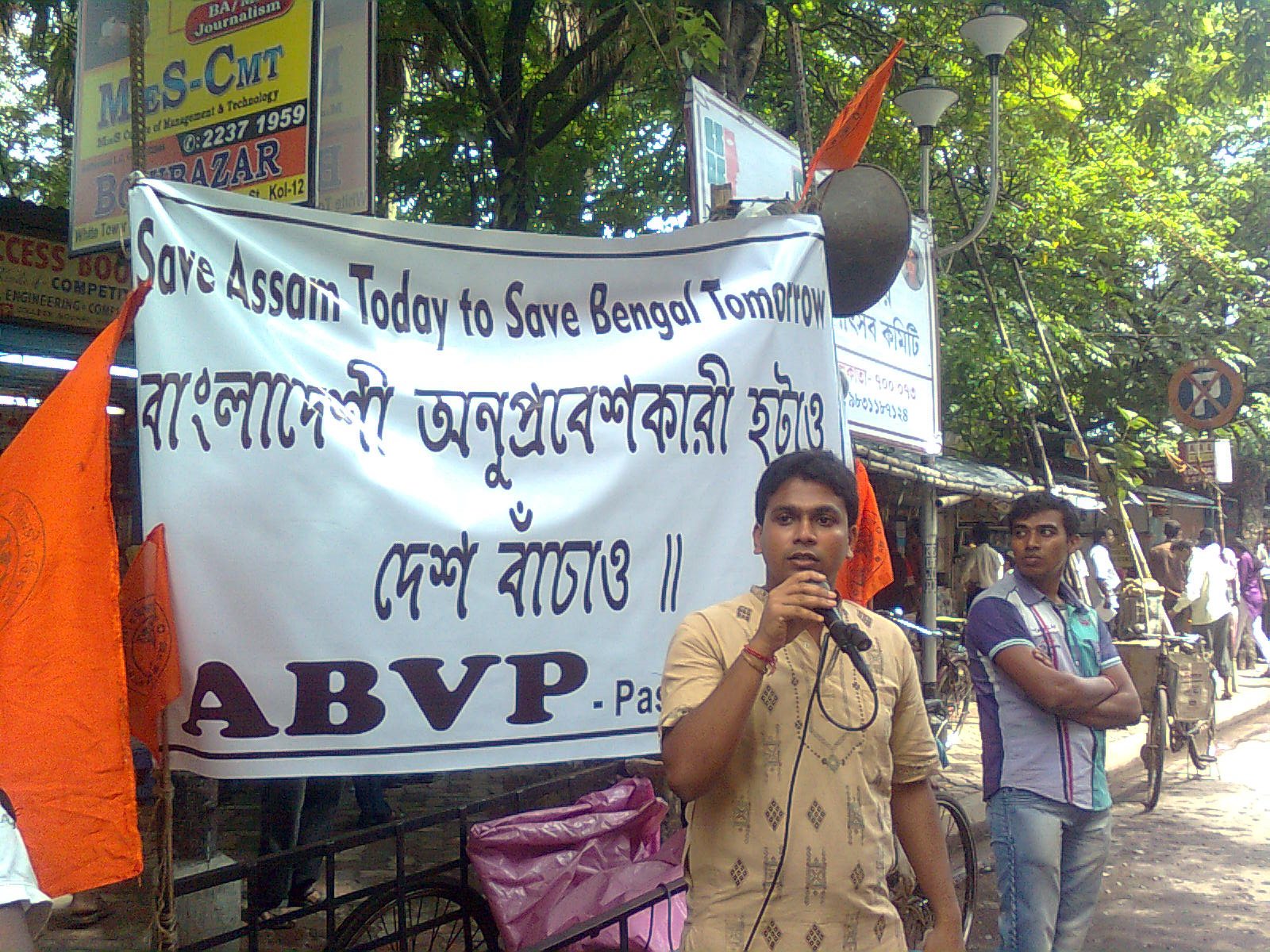Amidst all the criticisms of the BJP government on the basis of their right wing cultural agenda(which is worrying enough), something that tends to get drowned out is the debate regarding their regressive economic policies. What hasn't been talked about enough, is that within the two budget sessions that the Modi Government has presided over, has been their assault upon welfare schemes in India.
Now, I am no economics major, so caveat emptor, and while I may try restricting myself to what little I know or understand, I would be extremely grateful if those who understand the subject better than I do would point out the mistakes in this essay(and I will do my best to rectify them).
A quick survey of opinions on social media demonstrate an optimism regarding the 'Modi budgets' in boosting economic growth(by which they mean the growth of the nominal GDP) and investor confidence, but what is galling is how some influential social media personalities, representing the 'young enterpreneurial India' have scored the Government well on social security, for instance
this answer on Quora which scores them 9/10 on social welfare, completely ignoring the more in-your-face cuts in welfare spending by the Central Government.
Worryingly, a lot of people take such opinions as 'facts', rather than doing any background research or reading between the lines. Furthermore, even when accepting the reality of such cuts in social welfare spending, 'Young India' often accepts the rhetoric that such cuts in social security are 'necessary' to achieve 'economic growth'(again, nominal GDP).
One of the biggest concerns is Government spending on health. Even during the UPA regimes, the health budget peaked at a 4%(inclusive of private healthcare) of the GDP and in 2010, the WHO listed the total expenditure on health at purchasing power parity per capita at a paltry 126$ coming in at 151st place out of 191 nations. The spending on public healthcare is shockingly low at a mere 1.3% of the GDP. The over-reliance on private healthcare providers makes healthcare an expensive proposition for most Indians. The reliance on the private sector is at 70% and 63% of urban and rural households respectively.
While Modi ambitiously talked about introducing a 'Right to Health', he simultaneously slashed the Union's abysmal health expenditure by a further 1/5th. What the budget cuts do is that healthcare needs must be met by the private sector which can severely overcharge patients in the absence of competition from an affordable/free public health system. This comes in a nation where over 1.5 million hospital beds need to be added and the number of medical personnel need to be increased twofold to meet the minimum standards set by the WHO.
But it isn't just the healthcare sector which has faced budget cuts, there are two key sectors which the previous NDA and UPA governments had declared as 'rights' which are facing serious budget cuts- education and food.
Take the Vajpayee government's own pioneering scheme for instance, the Sarva Siksha Abhijan, the compulsory free primary education project, on which spending has decreased from nearly 278 billion rupees to 220 billion rupees(a cut of 22.14%). The funding for the Mid-Day meal project has been cut by 16.41%, the Madhyama Siksha Abhijan for secondary education by 28.7% and the Rashtriya Uchhattar Shiksha Abhiyan for supporting state colleges by a massive 48%. The overall spending has decreased from 828 billion rupees to 690 billion rupees(both figures approximate), a cut 24.68%.
This comes when the MHRD set an initial requirement of 550 billion for the
expansion of the SSA. The UPA government fell short of the targeted 6% of the GDP being spent on education at a peak of 4%, and the Modi government has cut that back further.
What is counterintuitive is that if Modi even wishes to fulfill his 'dream' of 'Make in India' and other nationalistic ambitions with regards to a skilled workforce, spending on education is vital. Problems of a low literacy rate, especially in rural areas, and high rates of dropping out cannot be solved by merely wishing them away. The Mid-Day meal project for instance was proven to increase enrolment, decrease drop-out rates, increase attendance and has been secondarily linked to improving academic performance as well. Furthermore, the condition of the public education system with regards to infrastructure isn't very encouraging either. I fail to see how such problems can be dealt with by reducing expenditure.
Turn over to food security, at present, the food security bill offers highly subsidized foodgrain to nearly 70% of the Indian population. However, the Government appointed Shanta Kumar committee has recommended lowering coverage to just 40% of the population. Furthermore, among other recommendations is the proposal to translate this into the form of a cash transfer as opposed to directly providing claimants with food.
The first problem with this is that poverty estimates in India, to put it very mildly, are very conservative(to frame it correctly would be to say they are ridiculous). The Rangarajan committee puts it at 29.5% of the population being below the poverty line(with a daily income of Rs. 32 for rural areas and Rs. 47 for urban areas being the new criteria). These figures do not take into account local variations or inflation and even were these figures adjusted, they'd still be well below the upper-limit of what one normally thinks of as poor. Secondly, much like the previous points of health and education, food as an essential service should be(and is presently) looked at as a right on which there should really be no compromise.
The other problem with this is if you consider the system of cash transfers as a viable substitute for the food. There have been numerous instances of hoarding, looting etc. associated with directly providing the foodgrain, and these are very legitimate concerns. The thing is that cash transfers are often ineffictive in getting the desired results because of certain seemingly odd consumer choices, as reported by Abhijit Banerjee and Esther Duflo, that cash transfers often result in the poor spending the welfare money on non-essential purchases such as meat/fish or even certain luxuries. When thinking of things like food security it is important to see that such programmes are reaching their targets, providing people with money guarantees that less than if anyone were to argue that the leakages through malpractice in the distribution are the reason to move towards cash trasfers. Furthermore, the estimates of leakages is grossly exaggerated at 47% by the Kumar committee, according to
Dreze, who goes on to say that even in Bihar, the amount of leakages is actually decreasing.
Similar accusations of 'inefficiency' have been used to justify a vicious cutback of the National Rurual Employment Guarantee Act. It is a fact that the system has led to a lot of embezzlements and the bureaucratic mess that ensues is a fault of its implementation. Of course, that does not mean the act needs to be rolled back without any stable alternative proposal that guarantees universal minimum income. The Union Government has not taken this up, even while rolling back on the NREGA. Furthermore, the various benefits of the NREGA far outweigh its deficiencies. References
here,
here and
here.
With the Modi government's gung ho promotion of 'e-governance' and cash transfers in virtually every other area(even where it could be detrimental, such as food security), one has cause to wonder why they haven't thought of implementing such a programme in the sphere of minimum income guarantee, while complaining about 'inefficiency' in almost every sector of welfare.
And although these are the most striking examples of the apathy of the government towards welfare and social justice, these are not the only examples of the same. Labour laws have been relaxed instead of strengthened and the government is actively pushing land acquisition through ordinances and in the parliament, but those are topics for an essay at some other time.
Much of the justification for cutting spending across the board has been that it is 'unaffordable' and 'necessary' to reduce deficit. However, at the same time, the already bloated defence budget has gone up when it could have been slashed radically to offer space for welfare schemes. Furthermore, the abolition of the wealth tax does nothing to stem the deficit either.
It also stands to question why the middle-class and income tax payers are still subsidized by the Government in view of the fiscal deficit. LPG and petroleum subsidies seem unreasonable, but remain more or less intact. There is also the question why the taxation rates on goods such as automobiles hasn't been raised radically enough.
Privatisation isn't a bad thing, and I believe that private enterprise is a right in liberal democracies. Neither am I opposed to the presence of private healthcare or education. There are in fact, sectors, where I think the private sector could offer very healthy competition to public sector initiatives and it stands to reason that such sectors should be opened up to private enterprise.
However, it is quite problematic when the Government shirks off its own responsibility in offering social security and entrusts it to private entities who are essentially, for-profit businesses. It is unfortunate that the present Government cares more for businesses than it does for the general population.











